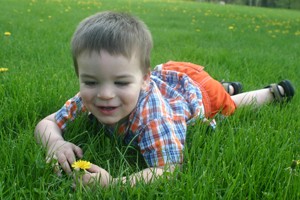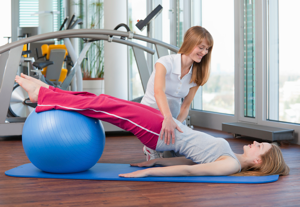Children’s physiotherapy is often used to treat a wide variety of conditions. The following symptoms can indicate the need to see a paediatric physiotherapist and may benefit from physiotherapy designed for children.
In babies and young children:
- Poor head control. The head appears floppy and hard for them to control.
- One side is used better than the other. One hand is held fisted, or the head is always turned the same way.
- Difficulty with nappy changing because the legs don’t bend and appear very stiff. When holding them up in a standing position it is hard to get them to bend in the middle to sit down again.
- Difficulties with feeding and swallowing. Choking on food or drinks.
- Generally slow to reach milestones: late or unable to sit, unable to crawl, not pulling up to standing or cruising round furniture.
- The Health Visitor or Practice Nurse may feel that developmental checks are not being achieved.
In older children:
- They appear uncoordinated and have difficulty with physical activities such as riding a bike, using a knife and fork, writing, dressing, P.E.
- They trip over their feet a lot and you notice their feet turn in, making running, skipping etc difficult.
- They continually complain of joint pains, tire easily and are reluctant to participate in physical activity, preferring to watch the T.V. or play on the computer.
- Reluctance to participate in physical activities at school.
- Lack of confidence and poor self esteem.
- They complain of back pain or knee pain on a regular basis. This may prevent them from participating in activities, P.E., etc.
Typical Symptoms of Dyspraxia
 These symptoms can also indicate be remedied with physiotherapy for children.
These symptoms can also indicate be remedied with physiotherapy for children.
- Late reaching milestones eg. sitting, standing, walking.
- Movements appear uncoordinated and awkward.
- Falls over frequently.
- Problems with throwing, catching, kicking a ball.
- Unable to ride a bicycle or manage simple playground equipment.
- Avoids or dislikes P.E. and general physical activity.
- Finds it tiring to walk long distances or complete physical activities.
- Handwriting is immature and slow to complete.
- Has a poor attention span.
- Often gets into trouble at school or opts out of activities.
- Difficulty with retaining and following instructions.
- Daily activities such as dressing, washing eating are difficult to perform.
Please remember that these are only examples. It does not necessarily mean your child has problems or will need physiotherapy aimed at children. You will know your child best and will know if they are having difficulties.
However, it is always better to seek early advice from a qualified children’s physiotherapist.
Frequently a preliminary assessment for your child may simply help to put your mind at rest and if there are problems your physiotherapist will be able to advise and help you or point you in the right direction for other help and support.



